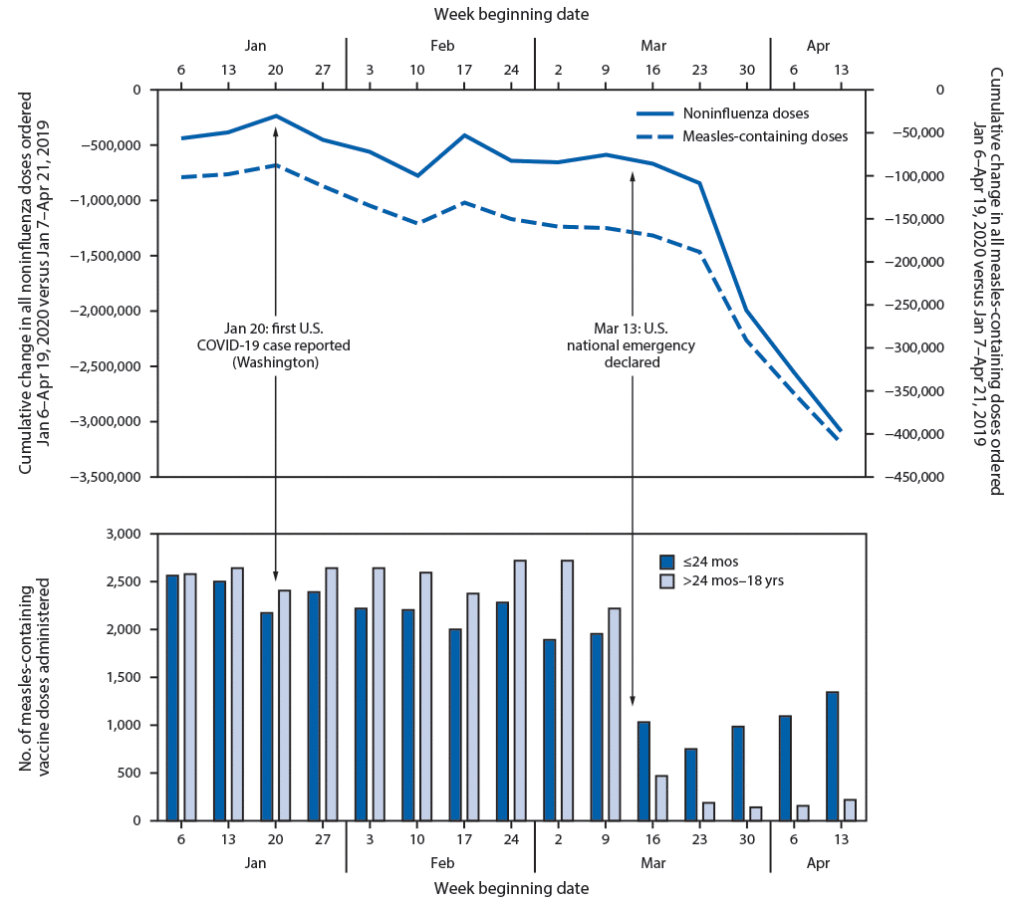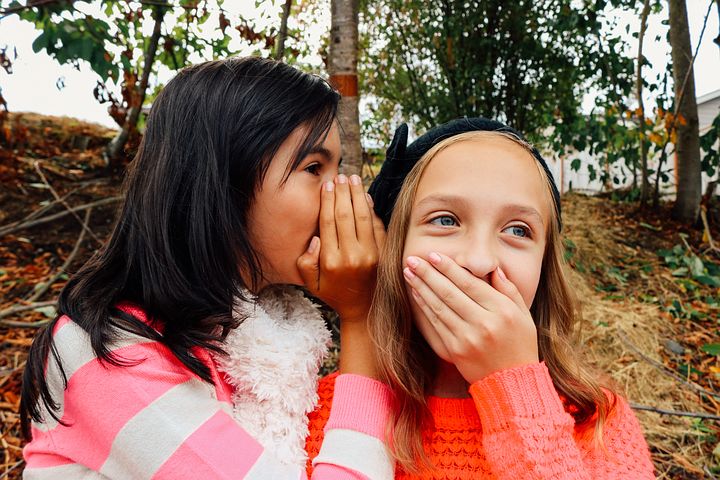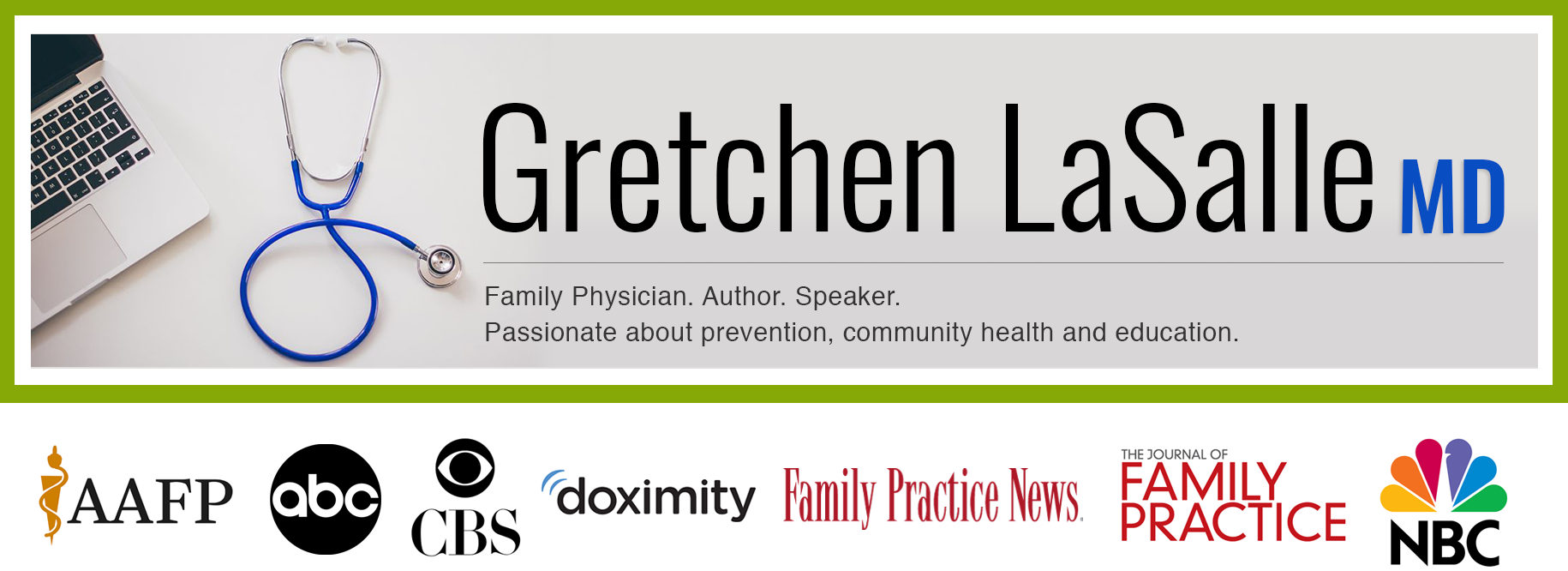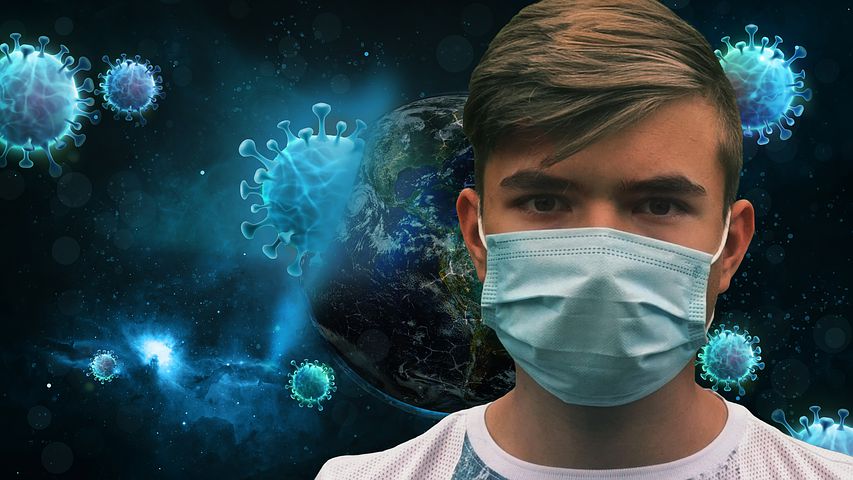Today, we’re going to talk about COVID vaccines and your teen. But first, a quick word about the Johnson & Johnson vaccine pause. While I could spend a whole blogpost discussing this turn of events, my friend Dr. Jill Grimes has already written an amazing piece on the topic (read here). So, why reinvent the wheel? Here are the take home messages I want to you remember.
- The pause represents a perfect example of the vaccine safety monitoring process in action. It works! We detect a signal of concern and we halt roll-out until we can determine that it is safe to resume.
- Infection with the SARS-CoV-2 virus itself is much more likely to cause blood clots, and serious ones at that, than the J&J vaccine.
- We still have two other excellent vaccine candidates that have shown no such blood clotting safety signal (or any other major safety signals, for that matter). These vaccines (Pfizer and Moderna) have now been administered more than 100 million times. If we were going to see any problems with these vaccines, we likely would have seen them by now.
- We won’t begin to get this pandemic under control until we get more people vaccinated. Don’t wait!
Also in the news…
In most states across the country, vaccine eligibility is now open to everyone 16 and up. This is fantastic! We have so many people that have been itching to get the vaccine but just weren’t yet eligible. I think we are going to see a surge in demand for appointments so get out there and get on the schedule.
But, what if you are under 18 years old or have a child under 18 years old? Currently, the Pfizer COVID vaccine is the only one indicated for ages 16+. You may have to put in a bit of extra effort to locate that vaccine. For you local readers, check here to help find locations offering the Pfizer shot in Spokane. Now, what if you are a parent of a teenager and aren’t yet sold on the vaccine? Maybe you have some questions or concerns. Maybe you’ve heard stuff that makes you worried. Today, we’ll discuss COVID vaccines and your teen (or pre-teen, as the Pfizer vaccine is soon likely to receive Emergency Use Authorization (EUA) for use in 12-15 year olds as well).
But first, a word about other vaccines…
Before I get into questions about COVID vaccines for teens and pre-teens, let me take a minute to make a plug for other, non-COVID vaccines. Due to the pandemic, immunization rates have fallen significantly. For some vaccine-preventable diseases, like measles for example, it takes up to 95% of persons being vaccinated to keep this highly contagious and deadly disease from spreading throughout our community. As vaccine rates have now fallen significantly below that threshold, we are at high risk of seeing a resurgence of other serious infections.

Graphs from the CDC showing significant reduction in non-influenza and measles containing vaccine doses ordered (upper graph) and reduction in doses of measles-containing vaccines administered (lower graph) between January and April of 2020.
People – we can’t handle other infectious diseases on top of COVID. We just can’t.
If the Pfizer vaccine indeed gets approved for those 12 and up in the next 1-2 months (as I am highly confident it will), we need to start thinking about catch-up immunizations and “back to school” shots NOW. Current guidelines recommend putting 2 weeks between COVID shots and any other vaccines. This is because the COVID vaccines weren’t given at the same time as other shots during the trials. Keeping vaccines separate also means there will be no confusion about which vaccine is the culprit if someone does have a vaccine reaction. The Pfizer vaccine is two shots spaced apart by 3 weeks. That means we will have a freeze on giving any other immunizations for at least 5 weeks after starting the COVID vaccine series.
Depending on when we will be able to start offering the COVID vaccine to our young people, that will put us dangerously close to back to school time. Our kids have to have all the required immunizations to be able to attend school in the fall. So, please start thinking about getting your kids into the doctors office to get caught up on all other shots sooner rather than later. We want your kids to be protected. We want to decrease the chance of further outbreaks in the community. And we want your kids to be able to attend school in the fall.
Ok, now to the COVID vaccine teen-specific questions
Really, these are the same as non kid-specific questions. Do teens and pre-teens really need the vaccine? Do the vaccines work? Are they safe? Let’s do a Q&A deep dive.
Q: Do kids really need COVID vaccines? I thought they weren’t at risk for serious illness.
A: There are two things to consider in answering this question – the risk to the child themselves and the risk that they pose to others.
- While we know that kids have fared much better through this pandemic than adults, we also now know that they are not immune to the damaging effects of a COVID infection. We have had more children die of COVID than die in a typical flu season. Children are suffering devastating health effects because of a condition called Multisystem Inflammatory Syndrome in Children (MIS-C). We know that COVID can negatively impact the heart. There is concern that infection in our student or other athletes could put them at risk for heart arrhythmias and sudden death when they return to play. Some of our children are also suffering from what is commonly known as Long-Hauler’s syndrome. And, what scares me the most is what we DON’T KNOW about COVID’s longterm effects. How will a COVID infection impact our children 5, 10, 20 years down the line? Only time will tell.
- The second consideration, however, is the role that our pre-teens and teens (not always known for considering the potential outcomes of their actions) play in transmitting the virus to others. The CDC looked at transmission dynamics by age group in COVID hotspot counties of the U.S. between the months of April and September, 2020. Before a geographic hotspot was identified, the highest COVID positivity rate was in persons 18-24 and 0-17 years old. Translation… COVID spread among young people drives outbreaks. If we are going to stop the spread of this virus through the community, we have to include children/teens in vaccination efforts.
Q: Do the COVID vaccines really work? Do they reduce transmission of the virus so kids can’t spread it to others?
A: There’s really two different questions here. What is the vaccine’s ability to prevent infection in an individual (efficacy)? And what is its ability to keep that person from spreading the virus to others (reduction of transmission)?
- Efficacy – The data coming out of the Pfizer trial of 12-15 year olds is pretty darn impressive… 100% efficacy. This is even better than what we see in our 16 years and older trial participants (and 95% efficacy is nothing to sneeze at)!
- Reduction of transmission – The initial vaccine trials were not set up in such a way as to measure the vaccines’ ability to decrease transmission. However, studies looking at this question since the vaccines’ release for use are showing very promising results.
- We are seeing a reduction in not only symptomatic but also asymptomatic infection following immunization, with significant effects even after only one dose.
- Newer research also suggests that viral load (the amount of viral particles present in a person during an active infection) is reduced 4 fold in those who have been vaccinated. Again, even after only one dose (note, this is a pre-print article – read here for the discussion of potential limitations of pre-print articles). If we aren’t infected we can’t transmit the virus. And even if we are infected, lower viral load due to vaccination means that we are less likely to be contagious.
Q: Is the COVID vaccine safe for my child?
A: Short answer? Yes! Long answer? The FDA requires at least 2 months of phase 3 data before considering authorization of a COVID vaccine. This is because any serious adverse reactions (which are exceedingly rare) will usually make themselves known in this timeframe. There have been no reports of such reactions noted in the Pfizer trials on 12-15 year olds. And our experience with our adult population (now having received tens of millions of vaccines) suggests that we won’t see any signals of concern in the future.
As for the reactogenicity of the vaccine in our teens and pre-teens, it is similar to what we see in adults. The first shot is generally well tolerated with low levels of post-vaccine symptoms like fever, body aches, fatigue, etc. The second shot tends to produce more of these symptoms but they are generally not severe, are well managed with fluids, rest, and fever reducing medications, and are short lived, most often resolving within 1-3 days.
A: There’s a second point I want to make about safety that is more specific to our teen and pre-teen girls.

Some parents may have heard rumors that the COVID vaccines cause fertility concerns. Photo credit Pixabay.
This rumored fertility concern is a myth. The suggestion is, because there is one protein (called syncytin-1) common to both the spike protein of the virus and the placenta, that antibodies to the spike protein through immunization would then attack the placenta. Let’s break this down a bit.
- First, semantics. If you have a placenta, you are pregnant. Logic would dictate that fertility (which is a woman’s ability to become pregnant) is not an issue.
- Second, as we’ve discussed in a prior blogpost (read here), the likelihood of this happening is practically non-existent. It would be like having 2 phone numbers that share one number in common, and calling one number expecting to get the other… just because of that shared digit.
- Third, the COVID19 illness itself also induces antibodies. So, getting infected with the virus should, according to this assertion, also cause the same pregnancy issues. We know that the COVID illness is potentially MUCH more severe and damaging/deadly than the vaccine. If we’re talking risk, the risk of the vaccine is NOTHING compared to the risk of the virus.
A personal note
I am a parent to two teenage boys, ages 14 and 17. They are back to in-person school. Both are involved in band (though their schools are taking great measures to protect them during this potentially higher risk activity). And my oldest is headed back to school sports (including basketball, with its indoor location and its up close, in-your-face contact). Having the vaccine available for my 17 year old (he’s had his first injection) and soon-to-be-available for my 14 year old gives me great comfort. I don’t worry as much about letting them get back to the activities that they love. They will be protected from serious harm. And they will be less likely to spread COVID to their friends or family members, some of whom are older or have immune compromising conditions.
As a doctor and a mother, I wouldn’t recommend anything for your child that I wouldn’t do for my own. Our children are our most precious possessions (not really possessions but you get my drift). I make the choice to vaccinate my children against COVID and all other vaccine-preventable diseases because I know the risk of the disease is SO much greater than any extremely rare risk of the immunization itself.
Well, there you have it. My advice? Vaccinate your teens and pre-teens. Vaccinations protect our health and our wondrous human potential. And they will be the fastest path back to some semblance of normalcy in our children’s lives.
Thanks, as always, for tuning in. If you’ve not yet signed up to receive automatic updates with new blogposts, you can do so here. Just scroll down to the subscribe button. Until next time…


Thanks folks! Keep up the great work!